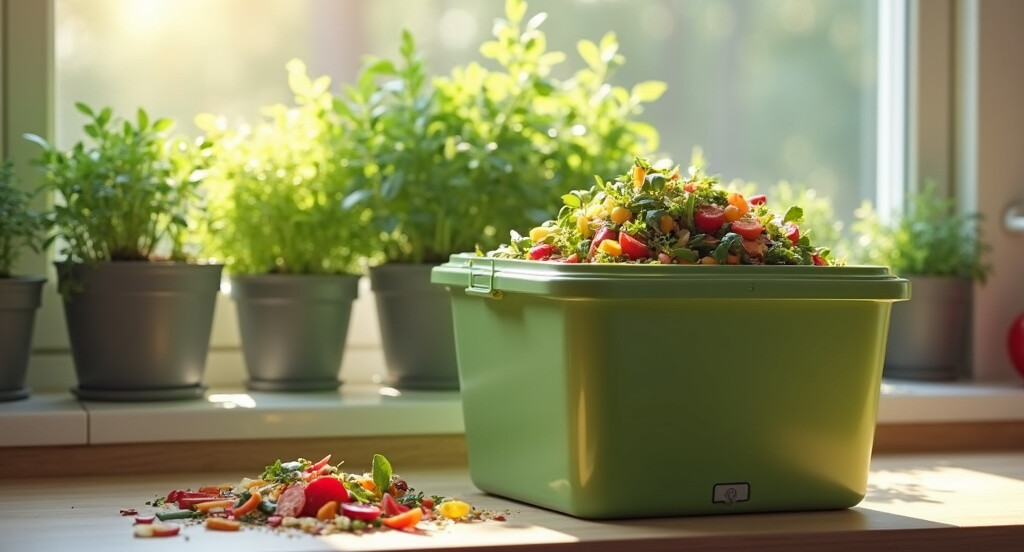
What Does Being Eco-Friendly Really Mean? (And How You Can Start Today)
Have you ever wondered what “eco-friendly” actually means? I know I did before I started looking into it. These days, the word pops up everywhere, from cleaning sprays to coffee shops – so it’s easy to tune it out. In short, being eco-friendly is all about living and making choices that don’t harm the environment. I put this guide together to break down what “eco-friendly” really means, why it matters, and how you can make practical changes starting right now. By the end, you’ll have plenty of easy steps to help you get started and make a real impact.
Defining Eco-Friendly
When someone describes something as eco-friendly, they just mean it’s less harmful to planet Earth. The term popped up back in the late 1900s when people started talking more about pollution, endangered species, and using resources more carefully. You’ll also see words like “sustainable” and “green” thrown around, but they aren’t exactly the same thing. “eco-friendly” usually means less damage is done; “green” hints at products or actions that support a healthy environment, while “sustainable” is all about making sure resources don’t run out for future generations.
Eco-friendly stuff is everywhere: reusable water bottles, plant based cleaners, solar panels, and even simply remembering to turn off the lights when you leave a room. It can also be part of someone’s lifestyle, like taking the bus to work or growing veggies in the backyard. If you look around your home, you can probably spot a few eco-friendly habits taking root without even trying. Switching up certain house products, fixing broken items instead of tossing them, or choosing natural fibres instead of synthetics all make a difference – even if it’s small.
Why Being Eco-Friendly Matters
It’s really important to be eco-friendly because our planet can only take so much. Pollution from trash and chemicals gets into the air, water, and soil, which can harm animals and humans alike. Climate change is largely caused by wasteful habits and polluting industries. When forests are cut down and resources overused, biodiversity (all those different creatures and plants) starts to disappear. Natural disasters like floods and wildfires are also worse when the environment is under stress.
These issues also come back to our own health; clean air and water are basics everyone needs. Making better choices now helps make sure our kids, grandkids, and future neighbours have a nice place to live too. Plus, living in a cleaner world often boosts mental health and happiness, so eco-friendly habits pay off for us and the planet.
How Eco-Friendliness Shows Up in Daily Life
- Home: Swapping old bulbs for LEDs, turning down the heat, unplugging gadgets, reducing water waste, and starting a compost pile can make a difference. Fixing leaky faucets and sealing windows can save resources and cut energy bills.
- Food: Shopping at local farmers’ markets, trying organic produce, eating less meat, and using leftovers before they go bad are all eco-friendly habits. You can also try growing some herbs or veggies in pots – perfect for beginners and fun for families.
- Shopping: Skipping single use plastics, buying reusable bags, and picking brands that use recycled packaging help cut down waste. Choosing quality items that last over cheap, disposable stuff reduces waste too.
- Transport: Walking, biking, using public transit, or driving an electric or hybrid car all help cut carbon emissions. Carpooling and trip planning cut back on extra driving as well.
- Work & School: Printing less, reusing supplies, and using energy saving settings on your devices add up too. Even small offices and classrooms can put out recycling bins and encourage everyone to pitch in.
Common Myths About Being Eco-Friendly
One thing I hear a lot is that being eco-friendly is expensive. That’s just not true across the board. Simple steps like using less water or eating less meat can actually save cash. Some think it’s inconvenient, but honestly, once habits get rolling, it feels pretty natural (plus, reusable shopping bags are super handy). Another common thought is that one person’s actions don’t matter. But if everyone thought that, nothing would improve. Every bit adds up.
Some people also believe you have to change everything overnight – start small, and each step becomes easier! There’s also the idea that eco-friendly products are always hard to find. In reality, more stores and services are offering sustainable options now than ever before. Keeping an eye out for labels like “energy efficient” or “made with recycled materials” makes shopping simpler.
Simple Ways to Start Living More Eco-Friendly Today
- Switch to reusable shopping bags and water bottles.
- Eat leftovers to cut down on food waste.
- Turn off lights and electronics when not in use.
- Try meatless meals once or twice a week.
- Walk, bike, or take public transit where possible.
- Buy secondhand or swap items with friends instead of buying new.
- Choose eco-friendly cleaning products and natural detergents for your laundry or dishes.
- Read up on local recycling rules to make sure you’re sorting waste the right way.
- Repair torn or damaged clothes instead of throwing them out.
Looking for more ideas? Check out my Eco Starter Guide to get going with easy, step-by-step tips and printable checklists for your home or office. You don’t have to do it all at once; a few changes each week add up fast. Try picking just one tip and see how it feels.
FAQs About Eco-Friendly Living
What’s the difference between eco-friendly and green?
Eco-friendly usually means less harm done to the planet, while “green” products or actions actually help support the environment’s health. You might spot these labels used together, but it’s helpful to know the small differences when shopping or picking habits.
Is eco-friendly living expensive?
It doesn’t have to be! Many eco-friendly habits, like using less energy or buying less stuff, save money. Sometimes you’ll pay a little more up front for something reusable, but it saves in the long run.
How can kids be Eco-friendly?
Kids can turn off lights, pick up litter, reuse school supplies, help sort recycling, and remind others to do the same. Even the smallest efforts can make a big impression on friends, teachers, and family members.
Are biodegradable products always Eco-friendly?
Not necessarily. Some biodegradable items take a long time to break down and can still pollute if not disposed of properly. It’s worth checking the details before you buy, and when possible, choose reusable or recyclable options instead.
Bringing more eco-friendly habits into your life just means being a little more thoughtful about your daily choices. I’m always excited to hear your own tips, so feel free to share in the comments, grab the free starter kit, or follow along for more low waste living ideas. Remember, every small step helps make the world brighter and more livable for everyone.
Affiliate Disclosure:
Some of the links in this post may be affiliate links. This means if you click on the link and make a purchase, I may earn a small commission – at no extra cost to you. Rest assured, I only recommend products or services I truly believe in and think you’ll find valuable. Thank you for supporting ecotiga.com and helping me continue to provide helpful content.
